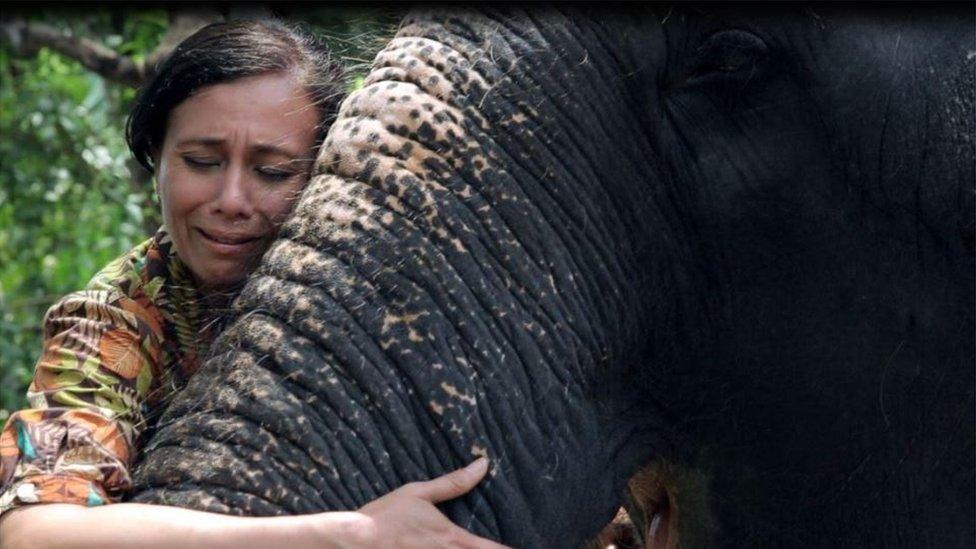Karnataka: India family pay $1,000 for missing parrot
- Published
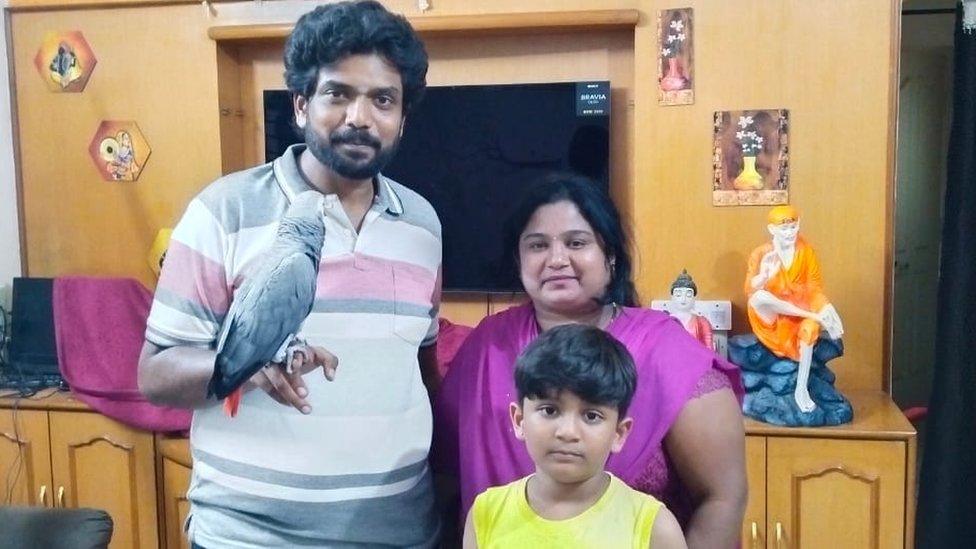
Rustoma's family offered a significant reward when he went missing
When her partner finally returned home after five long days, Rio was so delighted that she gave him a peck on the cheek. Literally.
Rio's partner, like her, is a majestic African Grey parrot named Rustoma who had escaped from their house when a door was left open.
Rustoma's disappearance made headlines when his distraught family - from the southern Indian state of Karnataka - offered a cash reward to anyone who could get him back.
When Rustoma was safely returned five days later, his family was so happy that they paid his rescuers 85,000 rupees ($1,065; £885) - a significant amount, and higher than the reward they had originally announced.
The Shetty family said they bought the two parrots from Bangalore city three years ago. It's not illegal to keep African Grey parrots as pets in India, but conservationists have often advocated for restrictions on breeding and trading of exotic birds in India.
"We have always treated them as part of our family and never believed in putting them in a cage," says Arjun Shetty, a businessman.
The birds, he says, loved spending time with the family - especially Vihan, Mr Shetty's seven-year-old son - and imitating the sounds they heard around them.
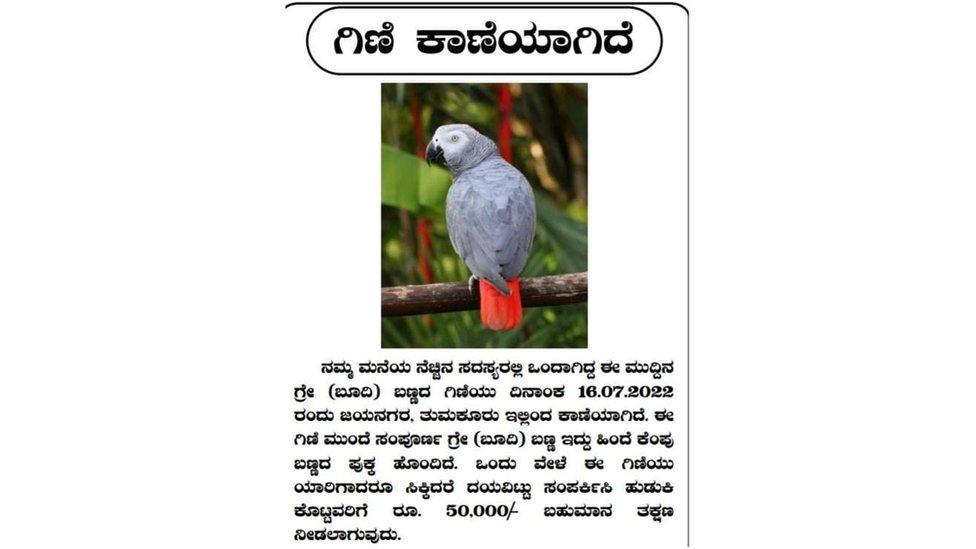
The family put up posters with Rustoma's details

But 10 days ago, Rustoma flew out when the family was bringing some furniture into the house.
Rio was so distressed at her partner's disappearance that she refused to eat.
Mr Shetty says he spent a "considerable" amount of money printing and distributing leaflets and posters with a photo of Rustoma, the family's details and the reward amount - 50,000 rupees.
They put up the posters on several streets in Tumakuru city, where they live. The family also paid for tuk-tuks to drive around blaring announcements about Rustoma on loudspeakers.
While this was going on, Rustoma was just three kilometres (1.86 miles) away from them, being looked after by two labourers, Srinivas and Krishnamurthy.
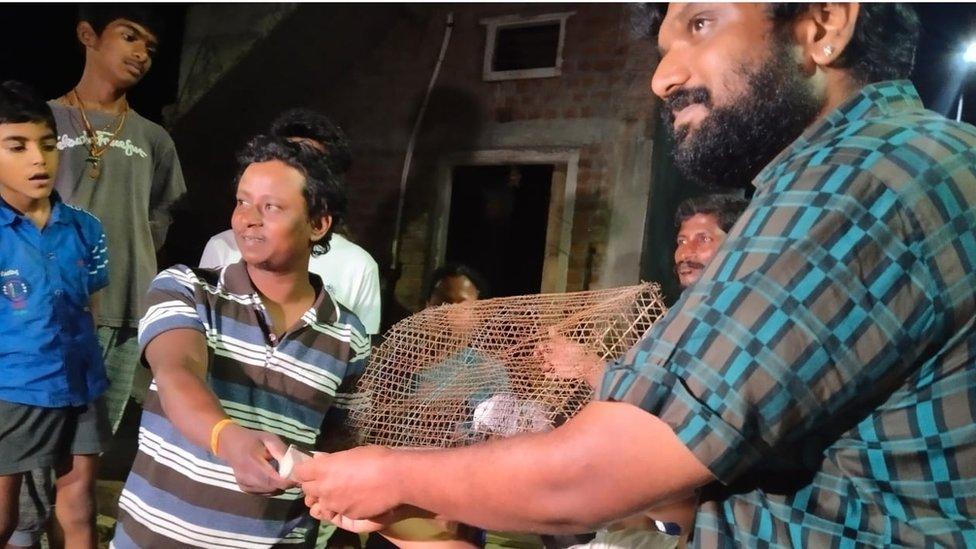
Rustoma was found by two labourers
Krishnamurthy had found Rustoma just a day after he left home - the bird was sitting high up on a tree, trying to stay safe from cats and dogs. He looked dull and exhausted from fear and hunger.
Rustoma came willingly with Krishnamurthy - he left him with Srinivas, who put the bird in a cage and fed him.
Four days later, the men spotted a handbill and called Mr Shetty. It was then that they realised that the reward amount was even higher than what was promised.
"We had consulted a priest who said Rustoma would return in three days. But he told us it could be even sooner if we raised the reward amount,'' Mr Shetty says.
When he went to collect Rustoma, the parrot was sitting inside his cage, looking sullen and glum.
"You should have seen him when he saw me. He started making these very loud sounds that he makes whenever he is happy and very excited," Mr Shetty recalls, laughing.
The entire family was ecstatic at Rustoma's return, but none more than Rio.
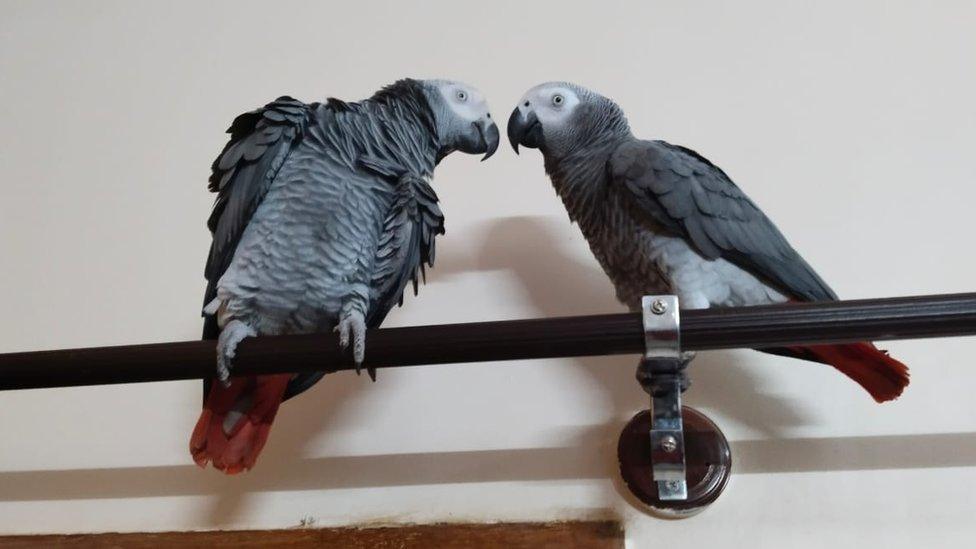
Rustoma and Rio were delighted to be back together
Mr Shetty says they will keep a close watch on the birds now. But the shock of Rustoma's disappearance has got the family wondering whether the birds would be happier in a larger environment like a zoo in India or abroad.
"Don't parents send their children abroad so they can study and do well in life? It is not necessary for the children to live with us," he says.
"If they will be happier there, we are prepared to stay away from them."
- Published23 May 2022
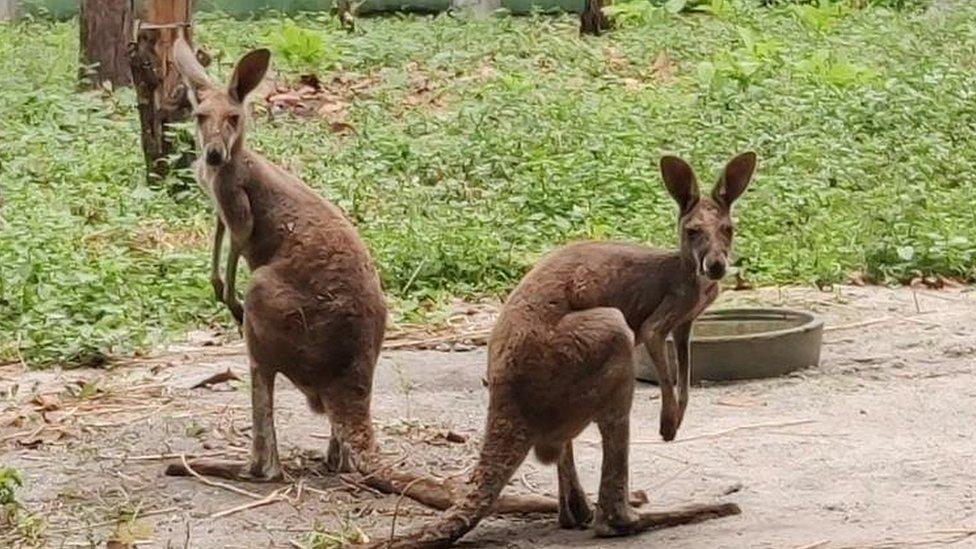
- Published7 September 2020
